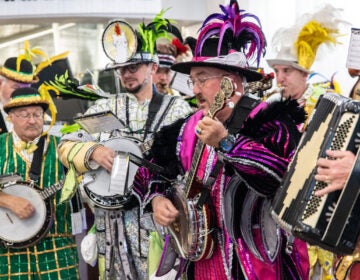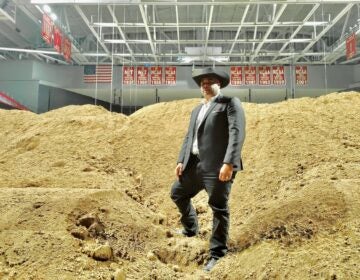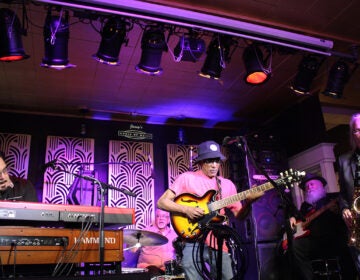Gospel according to Oedipus: Greek myth resounds in African-American church
The black churches of Coatesville show Philadelphia how it's done in "Gospel at Colonus."
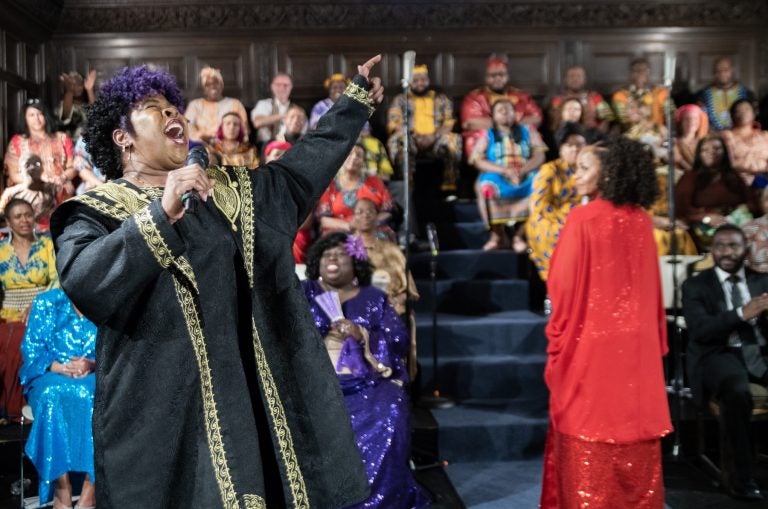
Paula Holloway belts out a song during a dress rehearsal of "The Gospel at Colonus." (Aaron Lucas)
Oedipus, the tragic Greek character who unwittingly murdered his father and married his mother, is near the end of his life. Blinded by his own hand, he is led by his daughter to the sacred grove at Colonus, where he asks for mercy and sanctuary.
In “Gospel at Colonus,” a musical that had a Broadway run in the 1980s, the story is set in an African-American church where a gospel choir acts as a Greek chorus.
“Somehow – I know it seems strange – but somehow merging Greek mythology and gospel works,” said Bruce Parham, who plays Oedipus in a production now running at the First Unitarian Church in Philadelphia’s Center City.
“There are moments where, as a Christian, I can relate to it,” said the pastor of Oasis of Refreshing Ministries with churches in Wilmington and Philadelphia. “When Oedipus is going through a time of lamentations, that reminds me of Jesus being in the garden of Gethsemane. There’s a connection I can make based on my Christian theology that helps me connect the dots.”
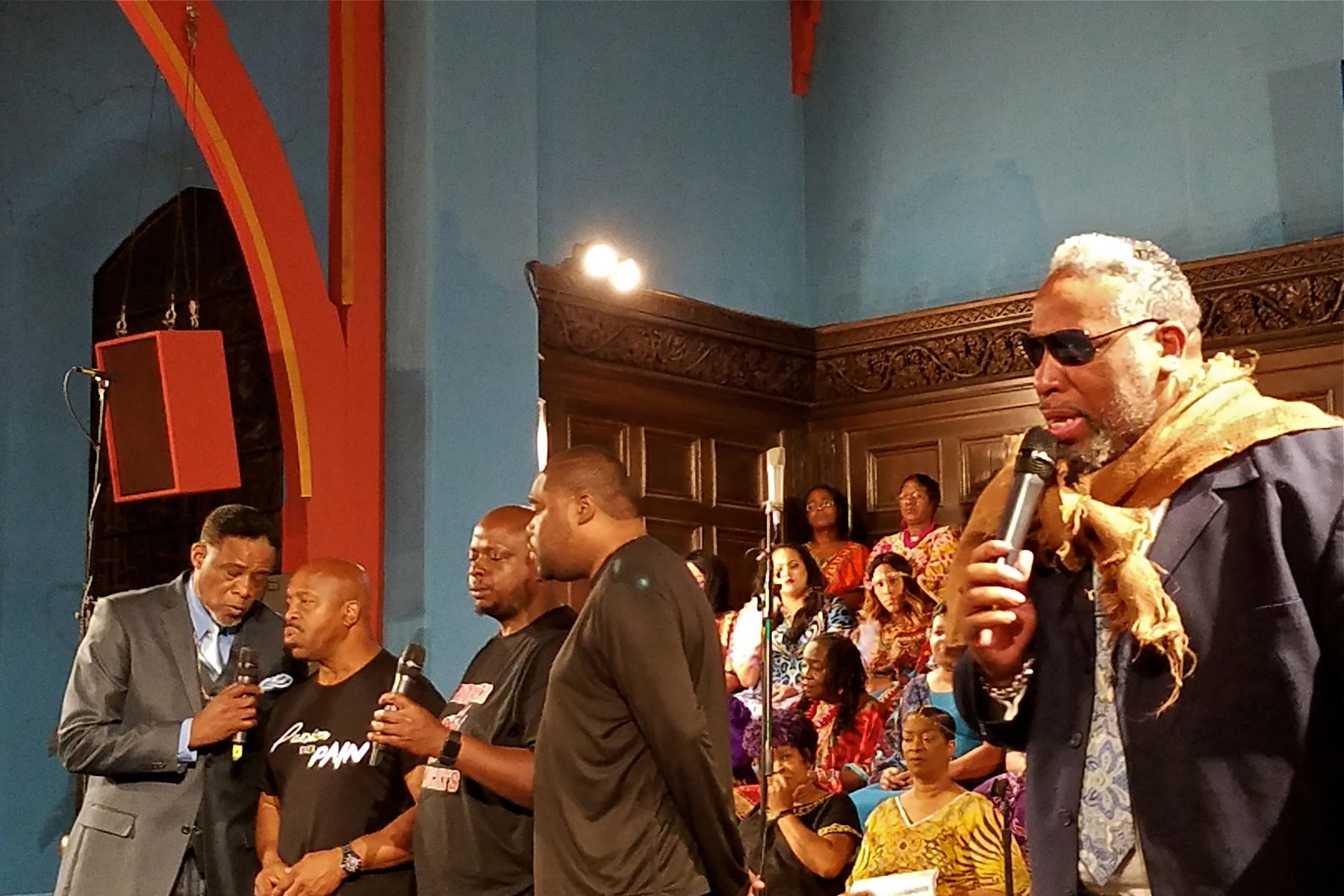
“Very few shows appealed to folks who were not used to going to theater,” said producer Danny Fruchter, a co-founder of People’s Light and Theatre Company in Malvern. “These tended to be liberal, white, upper middle-class, educated folks who thought going to theater was good for them or a pleasant entertainment.”
Fruchter was after a more social transformative theater. With partner Bobby Jones, they combed the black churches of Coatesville for talent. Their “Gospel at Colonus” was staged in a revival-meeting style setting at People’s Light. It was a hit; by his estimation, about 20,000 people saw the production in 1995.
As an assembly of real church communities, the 50-voice choir treated the musical as its own religious experience.
“We’re in church. We’re having church in the production,” said Bill Reeves, the vocal director of both the 1995 and 2018 productions.
“They are doing what they know,” said Reeves, a musician for several congregations around Philadelphia and Wilmington. “We have to stay in character, of course, but being in a Pentecostal church setting is something we are very familiar with.”
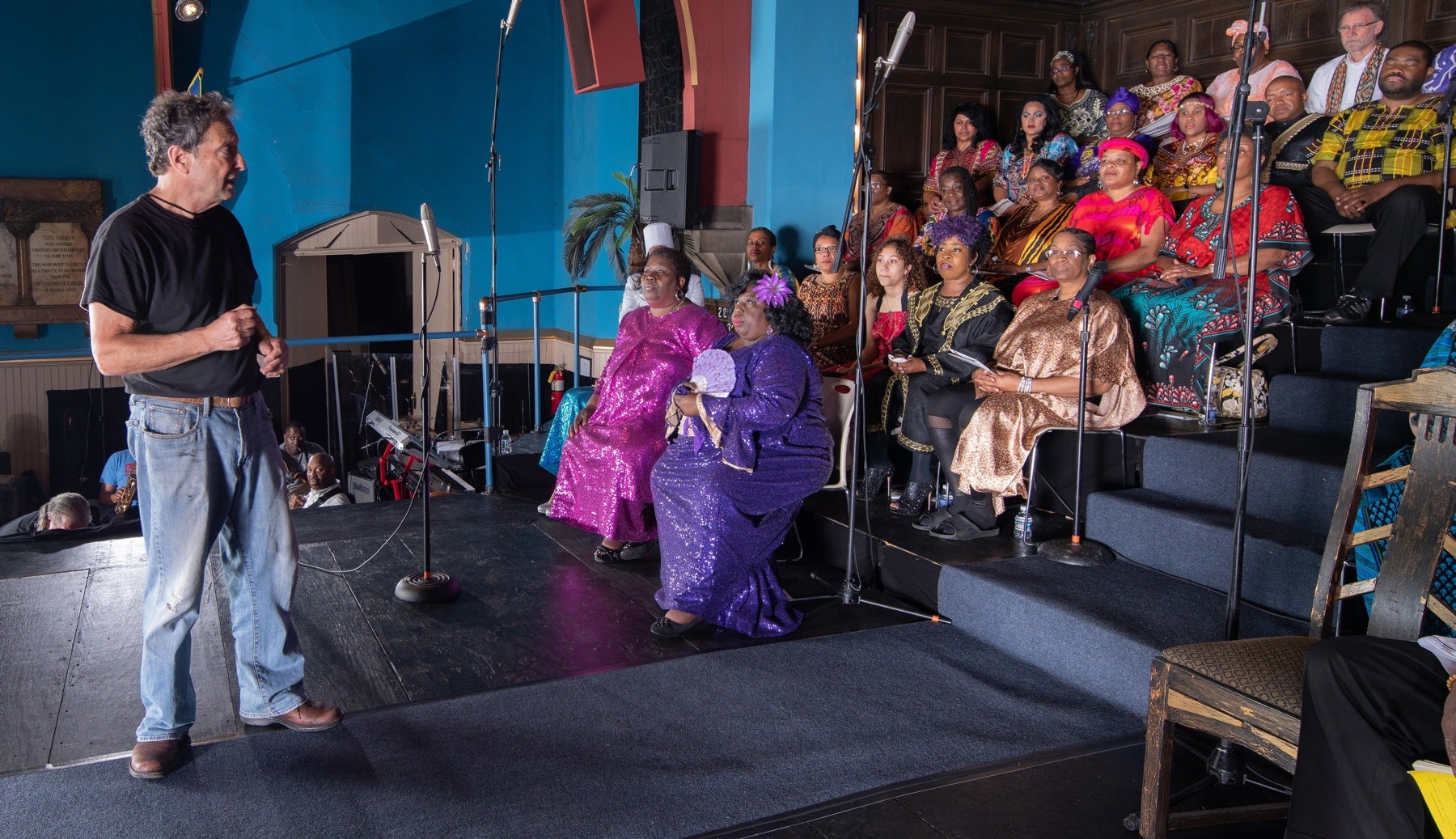
Last summer, the original cast reunited for a concert version of “Gospel at Colonus” in Coatesville. Not everyone was available – some of the singers from 23 years ago had passed away – but it was enough. The magic was back.
“It was deep,” said Fruchter. “It was a moving experience for all of us.”
Not willing to let another quarter-century pass, Fruchter set about bringing the production into the heart of Philadelphia. He found a generous partner in the First Unitarian Church on Chestnut Street, whose congregation was willing to accommodate the large cast with full band in its worship space for a two-week run of 20 performances. To the best of Fruchter’s knowledge, it’s the first time “Gospel” has been performed in a active church.
He is hoping to light a candle in the City of Brotherly Love.
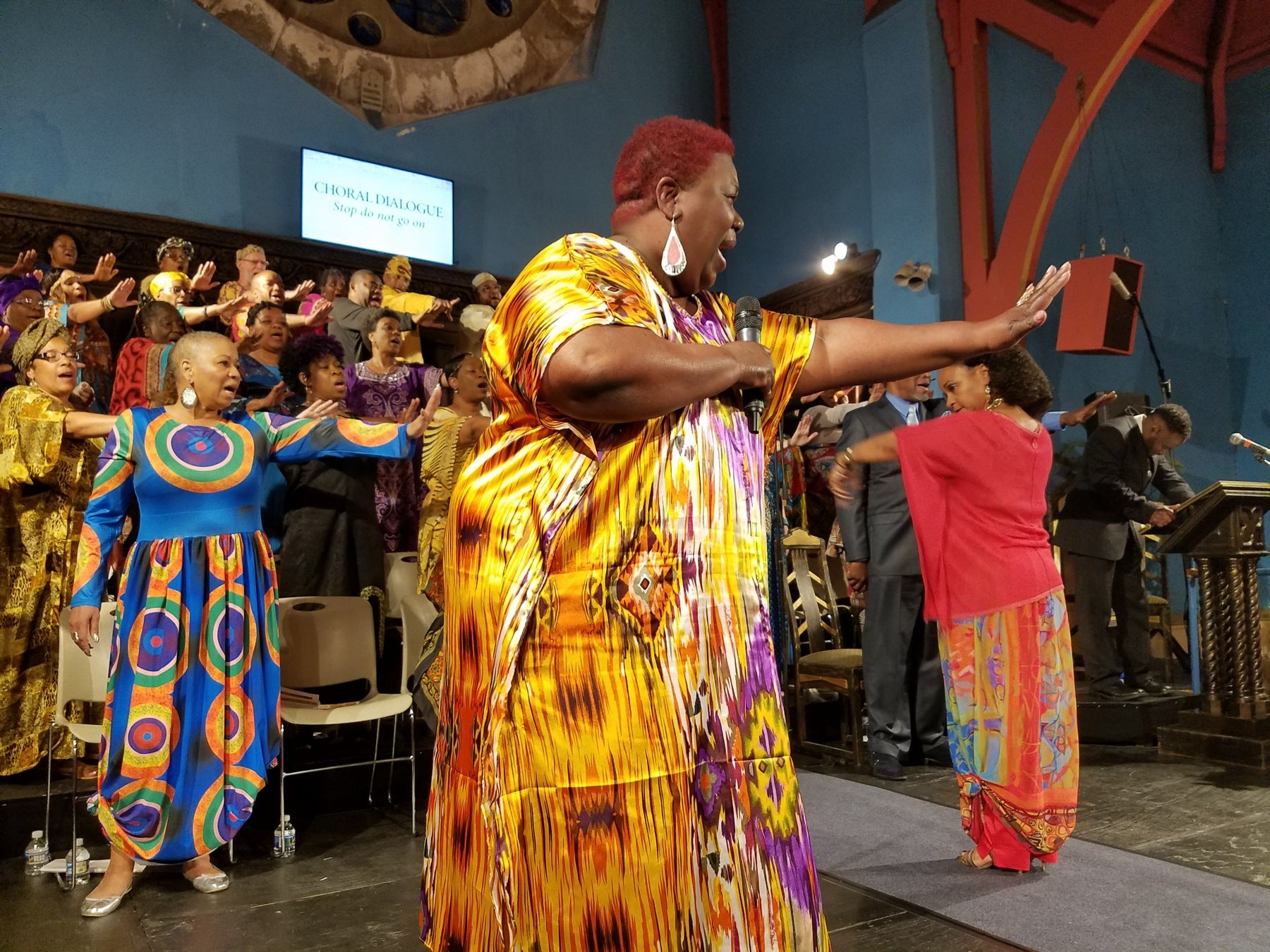
“Coatesville is a half-white, half-nonwhite town. Philadelphia is a half-white, half-nonwhite town,” he said. “We don’t live in the same neighborhoods. We rarely go to the same schools. We listen to different media outlets. We subscribe to different churches.
“Until we can find a renewal of our common civic life, we can’t make a society where I like walking down the street.”
If the two-week run goes well, First Unitarian has agreed to a two-week extension. Fruchter is prepared to keep it onstage in Philadelphia, somewhere, as long as people show up.
WHYY is your source for fact-based, in-depth journalism and information. As a nonprofit organization, we rely on financial support from readers like you. Please give today.



